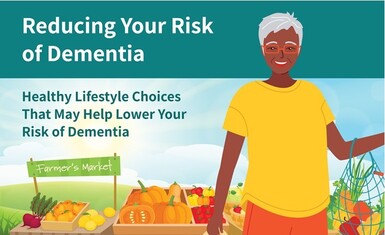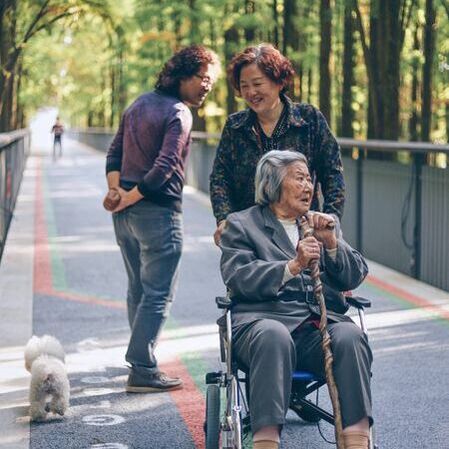 Photo by Breakingpic on Pexels.com Photo by Breakingpic on Pexels.com Being a family caregiver can be incredibly fulfilling, but it can also be challenging, stressful, and demanding. It is crucial to take care of yourself as a caregiver, as you cannot provide the best care for your loved one if you neglect your own physical, emotional, and mental needs. Here are five ways to take care of yourself as a family caregiver:
1 Comment
Hot weather can pose serious health risks to older adults, especially those with pre-existing medical conditions. Here are five important safety tips that can help keep senior citizens healthy during hot weather:
Check the links below for more ways to beat the heat. Summer squash, peaches, corn... Simple ingredients for the 2019 Healthyish Farmers’ Market Challenge.
 Photo by Mikhail Nilov on Pexels Photo by Mikhail Nilov on Pexels As a caregiver, it's important to be organized and keep track of important documents related to your role. These documents can help you provide better care for your loved one, ensure that their wishes are followed, and provide peace of mind for both you and your aging parent. Here are some important documents that caregivers should have:
Now, check out these additional resources.
 Photo by Kampus Production on Pexels.com Photo by Kampus Production on Pexels.com As our loved ones age, it can become necessary to find a caregiver to help them with daily tasks or medical needs. The process of choosing the right caregiver for an aging parent can be challenging, and it's important to carefully consider all the options before making a decision. One option is to hire a professional caregiver or home health aide. These individuals are trained and experienced in providing care for seniors, and they can provide valuable assistance with tasks such as bathing, dressing, and medication management. Professional caregivers can work full-time or part-time, depending on your needs and budget. Another option is to enlist the help of family members or friends. This can be a more cost-effective solution than hiring a professional caregiver, and it can provide your aging parent with the emotional support and companionship they need. However, it's important to ensure that family caregivers are compensated and have the necessary skills and abilities to provide safe and effective care. You may also want to consider an adult daycare program. These programs provide a safe and social environment for seniors during the day, while allowing their family members to work or attend to other responsibilities. Adult daycare programs offer a range of activities and services, including meals, medication management, and counseling services. Finally, you may want to consider assisted living facilities or nursing homes. These facilities provide 24-hour care and support for seniors who can no longer live independently. They offer a wide range of services and amenities, and can provide a safe and supportive environment for aging parents. Choosing a caregiver for an aging parent can be a difficult decision, but there are many options to consider. These include hiring a professional caregiver, enlisting the help of family members or friends, considering an adult daycare program, or looking into assisted living facilities or nursing homes. It's important to carefully evaluate each option and choose the one that best meets the needs of your aging parent and your family. Click the buttons below for resources and more information.
Caregiving can be rewarding, but it is also challenging. That’s why taking care of yourself — physically and mentally — is one of the most important things you can do as a caregiver. A few ways you can care for yourself include:
 Photo by Liza Summers on Pexels.com Photo by Liza Summers on Pexels.com Grief is bound to affect each one of us at some point in our live. It's normal. It's ok. Can be very different from person to person. And is so complex, in fact, that Elizabeth Kübler-Ross' original five stages of grief has evolved into seven. Check out this article, written by Kimberly Holland, that walks through the five and seven stages, with examples.
Even AARP’s expert on caregiving was bankrupted by caregiving costs It’s not easy being a caregiver for a sick or elderly parent or relative. Nor is it cheap. Family caregivers provide an estimated $470 billion worth of free care to loved ones, according to the Wall Street Journal, and spend an average 26% of their personal income on caregiving expenses. A third of caregivers use their own personal savings to pay the bills. Twelve percent take out loans or borrow from others. It’s such a financially perilous situation that AARP’s own caregiving expert, Amy Goyer, filed for bankruptcy protection in 2019 as a result of attending to the needs of her ailing parents. She simply ran out of cash after more than a decade looking after her mother, who had a stroke, and her father, who had Alzheimer’s. by David Lazarus / KTLA.com / Published February 21, 2022
Caregivers are often advised to seek help to lessen the caregiving workload. For many individuals, the natural place to turn for such help is family. Family Caregiver Alliance’s Holding a Family Meeting fact sheet provides information on how to approach the subject, advice on creating an agenda, lists key points to consider discussing, and explains potential conflicts that may arise.
Here's a great article to read that gives eight tips on how to provide assistance — and help yourself, if you are experiencing caring for a loved one while retired or are anticipating this scenario in the near future.
This quick read, written by Richard Eisenberg, hits on some of those high points and gives a bit of healthy advice in the process. If you or someone you know is experiencing a mental or behavioral health crisis, free help is immediately available.
The 988 Suicide and Crisis Lifeline is available 24 hours per day, 7 days per week, via phone, text and online chat, offering people compassionate care and support from trained crisis counselors for individuals, families or their loved ones. One does not have to be suicidal to call 988 but can reach out when experiencing any behavioral health crisis. 988 call services are available in English and Spanish, along with interpretation services in more than 150 languages. Texting 988 and online chat are currently available only in English. Veterans and military service members can call 988 and press “1” to connect with the Veterans Crisis Line. Pain is a signal that something may be wrong in your body. You’ve probably been in pain at one time or another but found that it often goes away as the body heals or with treatment. However, many older people may have ongoing pain from health problems like arthritis, diabetes, shingles, or cancer.
A few things you can do to help manage your pain and feel better are:
The National Institute for Aging has released an informative booklet discussing different aspects of pain experienced by older adults. To view the booklet, click the button below. If you have older family members or loved ones, you may worry about their health as they age. Aging increases the risk of chronic diseases such as heart disease, type 2 diabetes, arthritis, cancer, and dementia. The good news is that adopting and maintaining a few key behaviors can help older adults live longer, healthier lives. As a family member, it’s important to encourage healthy lifestyle behaviors in your loved ones — it’s never too late to start!
For tips on healthy aging, click the button below. Deciding to become physically active can be one of the best things you can do for your health. Exercise and physical activity are not only great for your mental and physical health, but they can help keep you independent as you age.
To learn more, click the button below.  Many factors may influence your risk of dementia, including genes, environment, and lifestyle. You can’t change some factors, but, as with many diseases, there may be steps you can take to help lower your risk. Learn more about how leading a healthy lifestyle is important for your health. To learn more, click the button below. If you do not see an aging friend or relative often, changes in his or her health may seem dramatic. In contrast, the primary caregiver might not notice such changes or realize that more help, medical treatment, or supervision is needed. Or, the primary caregiver might not want to accept the fact that the health of his or her spouse or parent is failing.
As a caregiver, you can provide support by helping an aging friend or relative get the care they need. To learn more, click the button below. If you don’t see an aging parent or friend often, changes in their memory and function may seem dramatic. In contrast, a primary caregiver like a spouse might not notice such changes or realize that more help, medical treatment, or supervision is needed. Talk with your loved one and the primary caregiver about your concerns. Consider these conversation tips:
For all that’s been said about the pandemic, we should be talking more about its impact on family caregivers – especially caregivers who are now returning to the workplace.
Millions of people fall into this group. Seven out of every 10 U.S. workers provide some form of care, often at personal cost. And now, more than two years into the COVID-19 pandemic, they face new challenges as they increasingly spend more time back in the office. Click the button below to read more. |
Caregiver
Whether in a medical professional setting or personal homes, Caregivers are caring and caring takes energy, wisdom and compassion. This Caregiver Blog is here to give you insight, encouragement and tools, not just to give care but to survive and thrive while doing it. Archives
July 2023
Categories
All
|





 RSS Feed
RSS Feed
